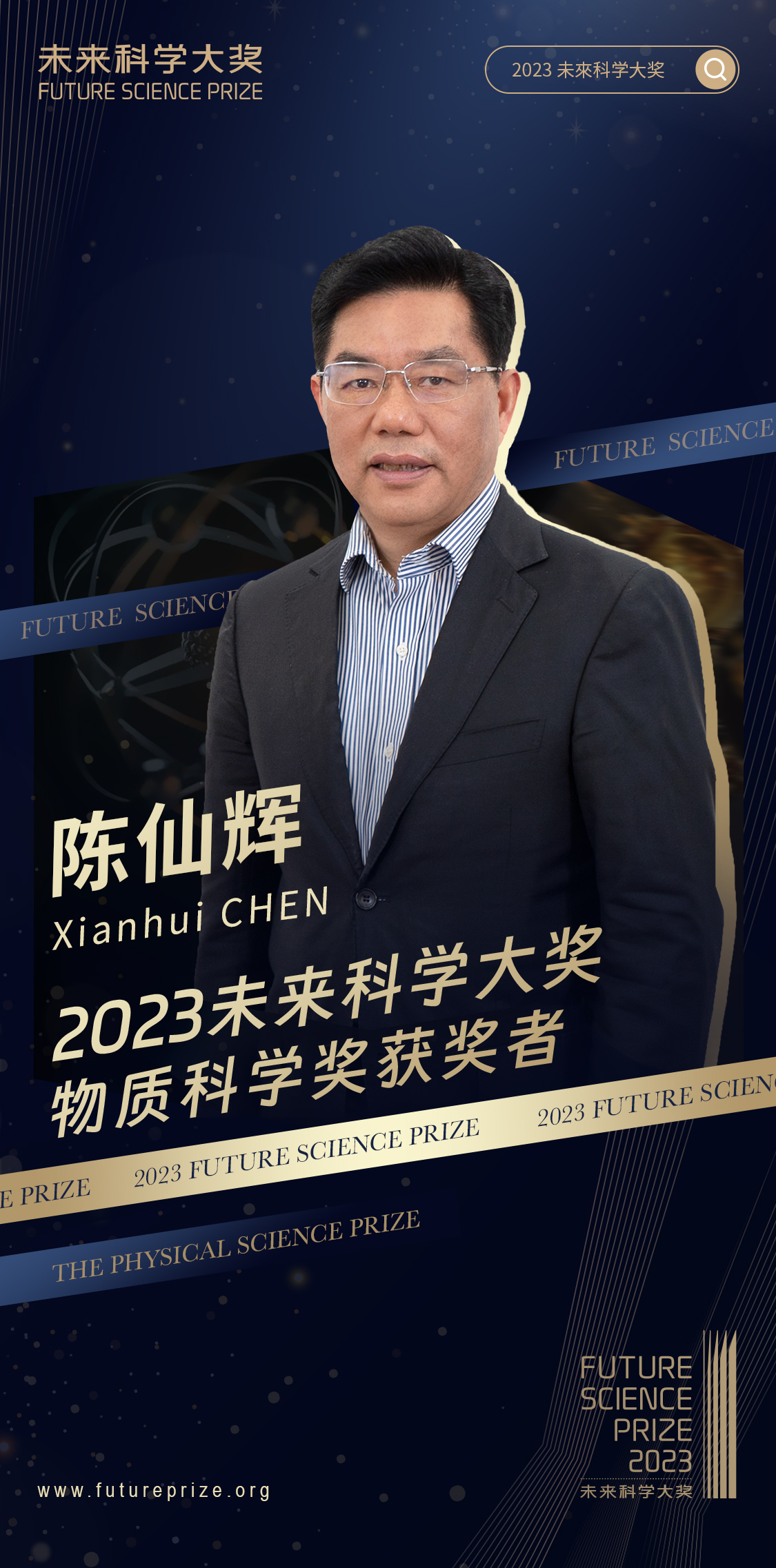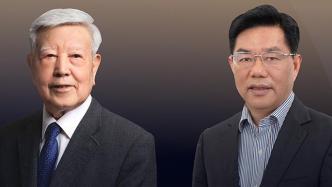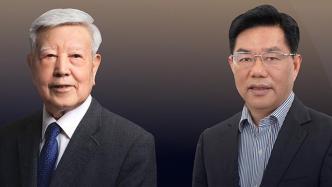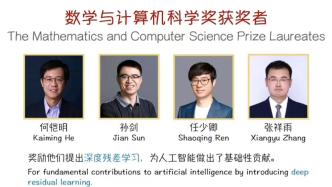
On the morning of August 16, the list of winners of the 2023 Future Science Prize-Physical Science Prize was announced.
Zhao Zhongxian, an academician of the Chinese Academy of Sciences, and Chen Xianhui, an academician of the Chinese Academy of Sciences, won this award in recognition of their breakthrough discovery of high-temperature superconducting materials and their pioneering contributions to the systematic increase of the transition temperature.
They will share a total of about 7.17 million yuan (equivalent to 1 million US dollars) in prize money.

Zhao Zhongxian, winner of the 2023 Future Science Award-Physical Science Award and academician of the Chinese Academy of Sciences.
Zhao Zhongxian, male, was born in Xinmin, Liaoning in January 1941, and is 82 years old this year. Academician of the Chinese Academy of Sciences, Academician of the Third World Academy of Sciences, Academician of the International Academy of Ceramic Sciences, member of the Tan Kah Kee International Society, director of the Academic Committee of the National Superconducting Laboratory. Part-time professor of National University of Science and Technology, Wuhan University, Peking University and other universities. Honorary Doctor of Science from the Chinese University of Hong Kong.
Zhao Zhongxian's main research direction is to explore high critical temperature superconductors and related mechanisms. After graduating from University of Science and Technology of China in 1964, he has been engaged in the research of low temperature and superconductivity. Since 1976, he has been engaged in the exploration of high critical parameters, especially the exploration of high critical temperature superconductors. In early 1987, Zhao Zhongxian and his collaborators independently discovered the Ba-Y-Cu-O superconductor with a critical temperature of 92.8K. In 1987, he won the TWAS Physics Award from the Third World Academy of Sciences; in 1988, he won the first Tan Kah Kee Physical Science Award. The research group won the first prize of the National Natural Science Award in 1990. In 2009, the research based on iron-based superconductors won the "Qiushi" Outstanding Scientific and Technological Achievement Collective Award together with seven other researchers; in 2013, he won the first prize of National Natural Science Award; in 2014, he won the Ho Leung Ho Lee Science and Technology Achievement Award; in 2015, he won the BT Matthias Award prize.
Zhao Zhongxian's current research topics and prospects are: exploring new superconductors; studying the mechanism of cuprates and iron-based superconductors; carrying out high-pressure synthesis and research on physical properties under high pressure; research on magnetic properties and transport properties.

Chen Xianhui, winner of the 2023 Future Science Award-Physical Science Award and academician of the Chinese Academy of Sciences.
Chen Xianhui, male, was born in Xiangtan, Hunan in March 1963. He is 60 years old this year. Professor of Department of Physics, School of Physics, University of Science and Technology of China.
Chen Xianhui received a Ph.D. in condensed matter physics from the University of Science and Technology of China in 1992 and stayed there to work. Since then, he has worked as a Humboldt Foundation scholar at the Karlsruhe Research Center in Germany and the Max Planck Institute of Solid State Physics in Stuttgart, and as a visiting professor at the Hokuriku Institute of Advanced Science and Technology in Japan and the Texas Superconductivity Research Center in the United States. In 1998, he was hired as a professor of the Department of Physics of the University of Science and Technology of China, and in 1998 he was funded by the National Fund for Distinguished Young Scholars; in 2002, he was hired as a Distinguished Professor of the Changjiang River by the Ministry of Education. He is currently a professor and doctoral supervisor of the Department of Physics, University of Science and Technology of China, and director of the Key Laboratory of Strongly Coupled Quantum Materials Physics, Chinese Academy of Sciences.
Chen Xianhui has been persisting in the exploration of new unconventional superconductors and the research of superconductivity and strongly correlated physics for a long time. The new superconductors discovered include cuprate superconductors, fullerene superconductors, iron-based superconductors and organic superconductors and other systems. Achieved a breakthrough in the research of iron-based superconductors: for the first time in iron-based superconductors (at normal pressure), superconductivity above 40 K was achieved, and the phase diagram and evidence of competition and coexistence between antiferromagnetism and superconductivity were given. Discovered the universal behavior of the large isotope effect and the linear temperature dependence of the magnetic susceptibility; found the abnormal behavior caused by the multi-degree-of-freedom interaction in the strongly correlated electron system; Chen Xianhui based on the fact that black phosphorus has a two-dimensional structure similar to graphite and has an energy gap, Put forward the idea of carrying out its research. Subsequently, he used high temperature and high pressure technology to grow high-quality black phosphorus single crystals, and cooperated with Zhang Yuanbo of Fudan University and other groups to successfully realize field effect transistors in two-dimensional black phosphorus thin-layer crystals.
Chen Xianhui's research direction is high-temperature superconductivity and strongly correlated electrons. He is also the editor of the Nature series magazines "Scientific Reports" and "Solid State Communications", the editorial board member of "Science Bulletin", the editorial board member of "Physics", the editorial board member of "Progress in Physics", the director of the Chinese Physical Society, and the low-temperature physics professional of the Chinese Physical Society Deputy director of the committee, member of the academic committee of the State Key Laboratory of Superconductivity and other academic positions.


